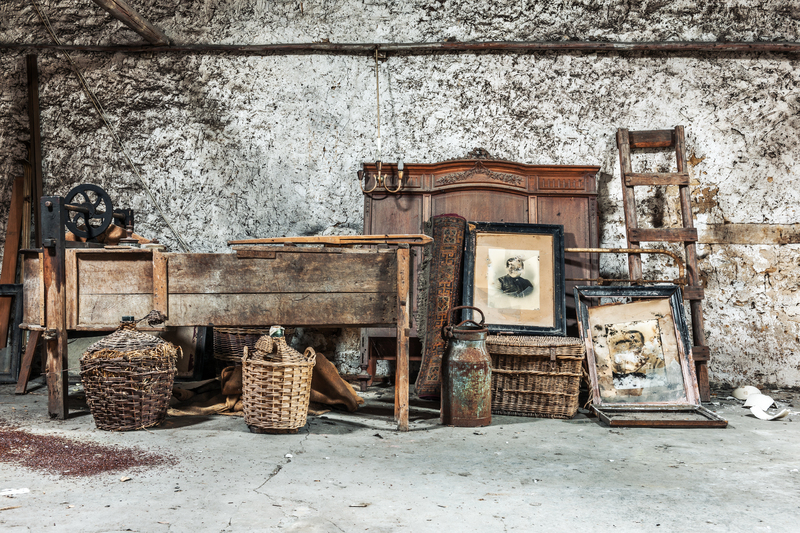Don't Hit a Sour Note: Professional Guidance for Piano Moving
Moving a piano is a delicate operation, and if you want to keep your prized instrument--and your back--safe, expert insight is crucial. This comprehensive guide offers piano moving tips, explores the benefits of hiring specialists, and breaks down every step of the process. Follow our professional guidance for piano moving so you hit all the right notes, every time.

Why Piano Moving Requires Special Attention
Pianos are stunning, intricate works of art--part furniture, part instrument and entirely fragile. Unlike a couch or kitchen table, even slight jostling during a move can cause irreparable harm to their precise internal mechanisms and cabinetry. Mishandling can lead to expensive repairs, tuning issues, or a total loss.
Understanding the true complexity of piano moving is key. Whether you have an upright piano, a grand piano, or a studio model, each comes with unique structural challenges. Weight, awkward shapes, delicate legs, and sensitive inner components mean moving a piano isn't just heavy lifting--it's both a science and an art.
Common Risks of DIY Piano Moving
- Back and bodily injuries from improper lifting techniques
- Scratched floors and smashed walls during navigation
- Broken strings, pedals, or keys risking costly repairs
- Misalignment or tuning issues making the piano unplayable
Professional piano moving guidance helps you avoid these pitfalls, preserving your instrument's integrity and your peace of mind.
Piano Moving Preparation: Getting Ready
Step 1: Measure Everything
Start by measuring your piano (length, width, height), and do the same for all doorways, hallways, stairs, and elevators it must pass through. Don't forget to consider corners and tight turns! Removing obstacles and planning the route in advance is essential.
Step 2: Secure the Right Equipment
Expert piano moving services use specialized equipment, including:
- Piano dollies designed for heavy instruments
- Moving blankets and padding to prevent scratches
- Straps and harnesses for safe lifting and transport
- Ramps for stairs and truck loading
- Skid boards, especially for grand pianos
Never substitute with regular furniture-moving tools. Pianos are unique--use the right gear for the job.
Step 3: Protect Your Space
Cover floors with non-slip mats or boards in all areas of transit. Remove rugs, furniture, and doors if possible. Make sure pets and children are safely out of the way during the move.
Choosing the Right Piano Movers
A search for "piano movers near me" will yield countless options. But not all movers have the training or insurance to move valuable instruments safely. Here's what to look for:
- Experience: Ask about years in business and expertise with your specific piano type.
- Insurance: Ensure the moving company provides comprehensive coverage for your instrument.
- Specialization: Opt for specialists who focus exclusively on piano moving.
- Reviews: Check online testimonials, ratings, and references.
A high-quality piano moving company will conduct an on-site assessment and offer a transparent estimate upfront.
The Piano Moving Process: Step-by-Step Expert Guide
1. Initial Assessment & Planning
A professional piano mover will inspect your instrument and your home, identifying any challenges and prepping a detailed moving plan.
2. Preparing the Piano
- Secure the lid: Close and lock the lid, or secure with tape if a lock isn't available.
- Remove music stands and pedals: Take off detachable parts and pack them separately.
- Wrap the piano: Cover with moving blankets and padding to protect against bumps and scratches.
3. Lifting and Moving
With a team of skilled movers, the piano is carefully lifted onto a sturdy dolly. For grand pianos, one leg may be removed and stored securely. Proper lifting technique is critical--never tip or drag a piano!
4. Maneuvering Through Tight Spaces
Experienced movers use sliders, ramps, and intelligent team coordination to navigate stairs, tight corners, and narrow doors. Communication during the move is constant and precise.
5. Loading and Transportation
The piano is secured in the moving truck with straps and padding. It should never be placed on its side unless using a designated skid board for grand pianos. Proper placement minimizes vibration and shifting during transit.
6. Delivery, Reassembly, and Tuning
Upon arrival, the process is reversed with equal care. If disassembly was required, professional reassembly ensures no parts are lost or damaged. After the piano settles into its new location, professional tuning is always recommended.
Benefits of Hiring Professional Piano Movers
- Expertise: Seasoned piano movers know the tricks, pitfalls, and best practices for every type of piano.
- Safety: Protect both your piano and your home from damage.
- Time-saving: Professionals work efficiently so you don't lose hours wrestling with a heavy instrument.
- Peace of mind: Comprehensive insurance provides security for your valuable investment.
Moving a piano on your own may seem frugal, but the risks often outweigh potential savings. The smallest mistake can result in costly repairs--or harm your ability to play the instrument you love.
Special Piano Moving Scenarios
Stairs and Narrow Hallways
Transferring a piano up or down stairs (or through aged, narrow hallways) is a high-risk operation. Experienced movers employ specialized ramps, extra manpower, and careful choreography. They may partially disassemble your piano or use cranes for high-rise situations.
Long-Distance or Interstate Piano Moving
Long-distance piano moves introduce new complications: temperature changes, long transit times, and multiple hand-offs. Select a mover with climate-controlled trucks and a clear chain of custody throughout the journey.
Piano Moving for Events, Concert Halls, and Schools
Institutions and venues may require regular piano relocations. Trust professionals attuned to tight schedules, who can coordinate moves efficiently with other logistics and setup teams.
Cost Guide: How Much Does Piano Moving Cost?
Several factors determine the cost of piano moving:
- Piano type: Uprights are generally easier and less expensive to move than grands.
- Distance: Local moves cost less than interstate moves.
- Stairs/elevators: Additional floors or complicated access raise the price.
- Specialty services: Craning, storage, or international shipping are premium services.
On average, local upright piano moves range from $150-$350, while grand piano moves may cost $300-$800 or more. Always obtain multiple quotes and ensure there are no hidden fees.
After the Move: How to Care for Your Piano
- Let the piano acclimate: Give it a few days to adjust to new temperature and humidity before tuning.
- Schedule professional tuning: Vibrations during moving usually cause pianos to go out of tune.
- Inspect for damage: Check the frame, legs, keys, and pedals upon delivery.
- Maintain ideal conditions: Keep your piano away from direct sunlight, radiators, and damp areas.

Frequently Asked Piano Moving Questions
Can I move a piano myself?
Technically, yes--but it's not recommended. Professional piano movers have equipment, experience, and insurance to handle challenges amateurs may overlook.
What's the safest way to move a grand piano?
Disassembly and careful packing are key. One or more legs may be removed, and the piano is moved on its side on a skid board. Always rely on trained professionals for grand pianos.
Is insurance necessary for piano moving?
Absolutely. Accidents, while rare with pros, still happen. An insured moving company ensures you're covered for damage or loss during transit.
How soon should I have my piano tuned after a move?
Wait a few days to a week for your piano to settle in, then schedule a professional tuning to restore its perfect sound.
Conclusion: Don't Hit a Sour Note on Your Next Piano Move
Piano moving requires finesse, patience, and professional-grade expertise. Whether your instrument is a family heirloom or a modern concert grand, ensuring its safe relocation is an investment in its longevity and your own enjoyment. Trust professional piano moving services to safeguard your beloved instrument, and you'll make beautiful music wherever you go!
Key Takeaways:
- Always use expert piano movers for safety and peace of mind.
- Preparation and the right piano moving equipment are essential for a smooth relocation.
- After the move, schedule professional tuning to restore your piano's sound.
With the right team by your side, you can rest easy knowing your piano is in harmonious hands. Don't risk a sour note--choose professional piano moving guidance and let every move end on a perfect chord.
